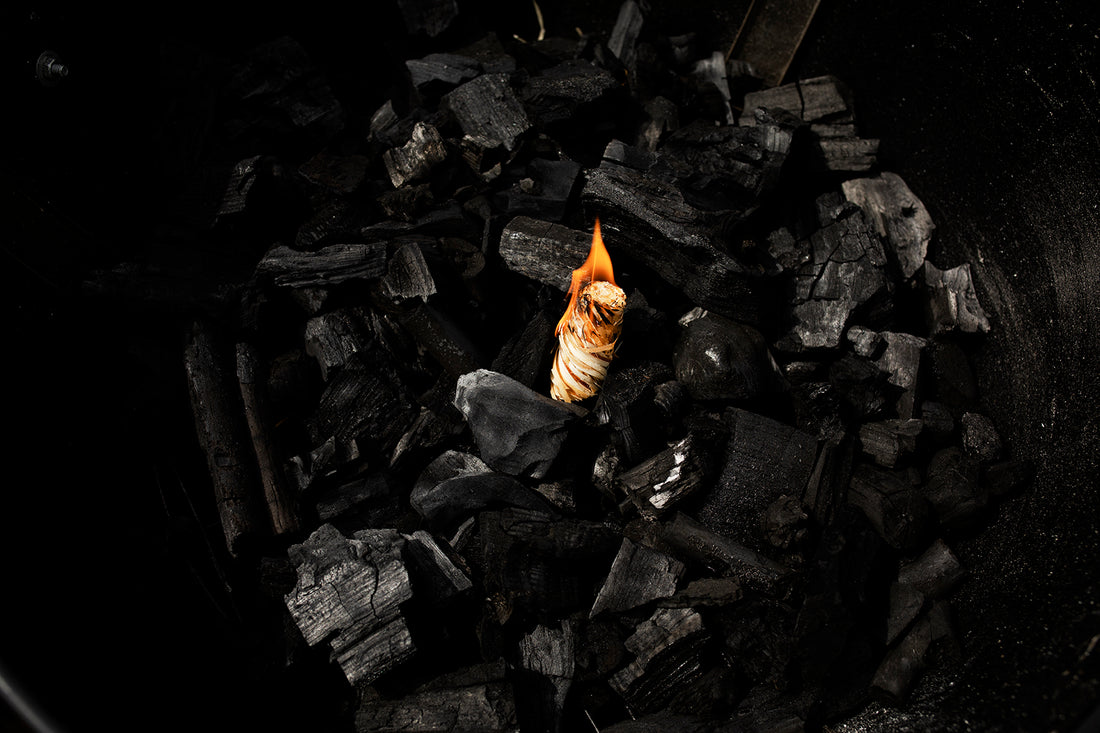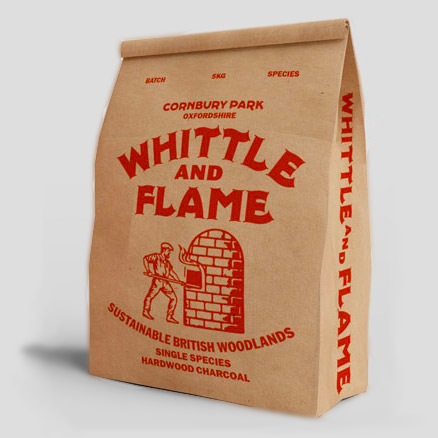
All You Need To Know About Charcoal
Share
Recently we had the opportunity to sit down with Matt from Whittle & Flame to talk about all things charcoal. Matt is an industry expert based in Chipping Norton and has been producing charcoal for a long time, so he knows a thing or two about it.
Exceptional charcoal comes from an understanding of time and temperature and Whittle & Flames' unique distilling process allows them to control both of these precisely. Unlike the majority of other charcoal suppliers, proper woodland management is at the heart of what Whittle & Flame do and they will only ever harvest their wood in harmony with the natural cycles of the forests.
Below you can find the answers to some of the most commonly asked questions centring charcoal and its making of.

Why it's important to buy British produced charcoal?
The charcoal industry is thought to be responsible for more than 10% of global deforestation every year. It’s not a thing that comes to mind easily when the warm summer days are with us, and we want to make the most of the long evenings BBQing with friends and family, but our choices have a real impact on people, ecosystems, and the global climate crisis.
Buying British made charcoal is a really positive choice that not only reduces pressure on global resources, but puts your money directly into the sustainable management and use of our own woodlands. It helps to fund the creation of vital habitats to support biodiversity, keeps woodlands healthy and growing, which in turn helps them to carry out their vital role in cleaning air and adsorbing carbon.
Where does most of charcoal sold in the UK come from?
Knowing exactly where most charcoal sold in the UK comes from is quite difficult. It will seldom tell you on the packaging, but a quick look from an experienced eye will tell you immediate that by far the majority is made from tropical hardwoods.
Sourcing changes from year to year, but Sub-Saharan Africa, Central and Southern America, Malaysia are all in there somewhere. Following the huge rainforest clearance under the last government in Brazil, plenty of the most available charcoal right now not only comes from that ecologically, humanitarian and climate disaster, but has directly paid for it to happen. To really top it off, that rainforest clearance was legal, as it was authorised by the Brazilian government, so plenty of it will even carry an FSC certification.
How to recognise sustainably sourced charcoal?
One sure way of recognising sustainably sourced charcoal is to look for a ‘Grown in Britain’ certification. This will be displayed prominently on the packaging and lets you know that all the timber used in its production will have been felled legally, within Forestry Commission rules, and within the UK. If you struggle to find this in the shops, please feel free to ask a retailer whether it's supporting British forestry, then ask Google… there are a few really good UK producers now selling online. You’ll also be rewarded with a product that is far superior to anything available else where.
Top Tip: Don’t wait for the sun to come out and accidentally panic buy something that will make you feel awful about yourself every time you see it, get some bags in stock so you’re ready for the elusive summer - whenever it happens to turn up!

Differences in species for the quality of burn when it comes to charcoal
All well made charcoal will be a bit of a treat, and each species has its place. They do, however, have quite different burning characteristics. Oak charcoal will be a little slower to light, takes its time to get going and release energy steadily. Sycamore and Field Maple are quick to light and want to burn hotter than the sun. Ash sits somewhere in the middle, politely steady but with an intense heat. Most charcoals share much of their character with the raw wood, but a few surprises are lurking in the line up. Sweet chestnut wood is virtually fireproof, it provides minimal heat as firewood and plenty of acidic smoke. Make it into a charcoal though, and you’ll see why this was favoured by those smelting iron from ore for thousands of years.

Why would you use Flamers vs other firelighters to light a charcoal BBQ
Good quality, well made charcoal is obviously an incredible fuel, but you’ll probably be aware that it’s also a brilliant filter. Used in cooker hoods and car air conditioning filters, it absorbs odours and pollutants with ease. This is why if you light charcoal with something that smells like petrol your whole cook will be tainted with this flavour. As they produce vapours, the charcoal adsorbs them, and gradually releases them while the charcoal burns away. This is why we always recommend Flamers Firelighters. Clean burning with no odour, these little fellas will get your fire lit without ruining your culinary endeavours.
